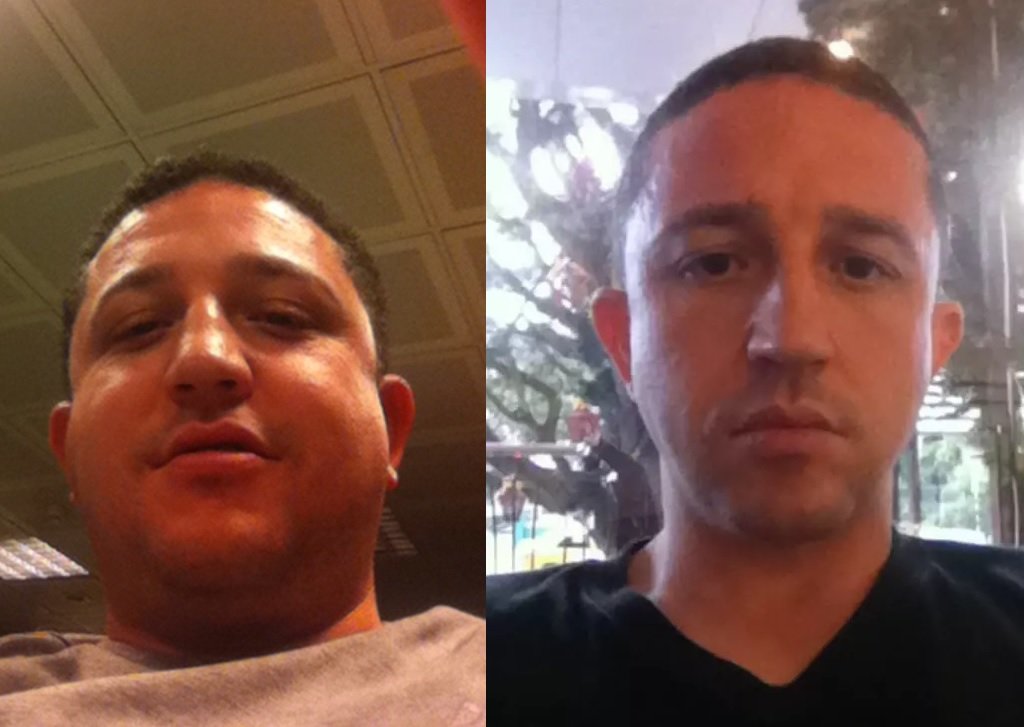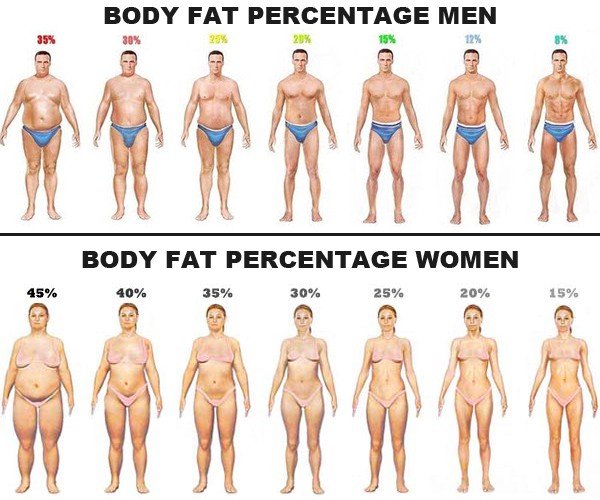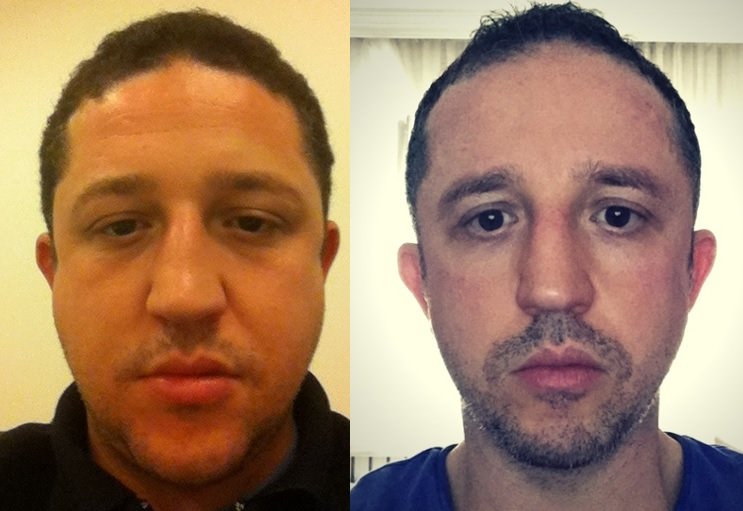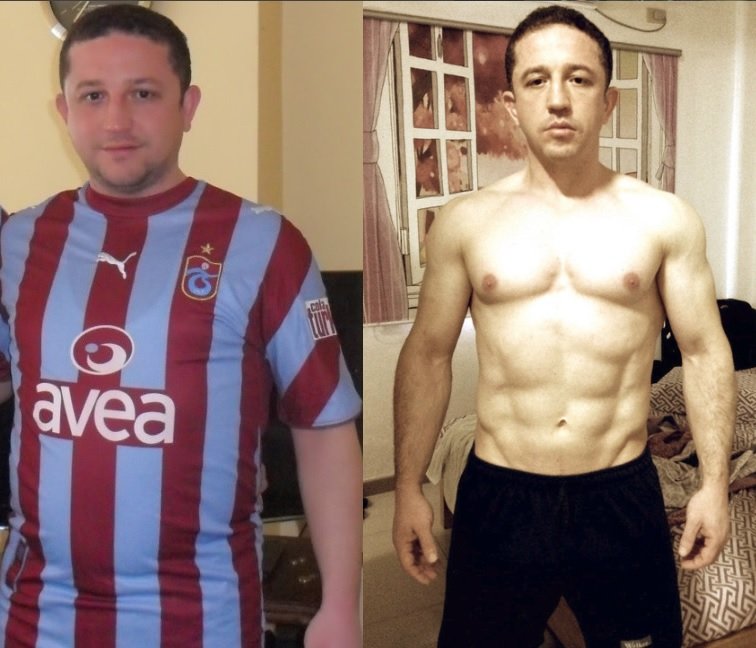
If you want to lose face fat and have a chiseled face, I want you to first look at the pictures on this page. I’m about to share with you the exact tactics and strategies I implemented to get rid of my chubby cheeks once and for all.
Why You Have A Fat Face
If you have a fat face then there are 3 possible scenarios at work:
- Your face looks fatter than your body.
- Your face looks as fat as your body.
- Your face looks leaner than your body.
Which group you belong to depends entirely on your genetics. Your body gets to decide where to store the fat you gain and there’s pretty much nothing you can do about it. Some people store more fat in their face, some store more fat in their hips, others store more fat in their bellies, and so on. No matter which group you belong to, a fat face is the result of an overall fat gain in your body.
I belong to the first group. My face starts to look fat even at the slightest fat gain and it balloons up in case I keep gaining weight. I had to go down to 10-12% of body fat just to have a lean-looking face. If you belong to the first group like me then you’ll probably need to go down to 10-12% of body fat (15-20% for women) but don’t fret. I know it’s frustrating to have the slightest fat gain showing on your face but remember, every downside has an upside. You have no other option than to play the cards you’ve been dealt and you are about to see how you can turn your genetic misfortune into an advantage.
If you belong to the second and third groups then you will get the lean face you want when you get down to 15-20% of body fat (25-30% for women).
Refer to the picture below for a rough estimate of your current body fat percentage.

How To Lose Weight In Your Face
Spot reducing fat is a fool’s errand because where your body stores fat is genetic. To lose fat in your face, you will have to reduce your overall body fat percentage. Lose enough fat and you will have a lean face.
Here are the most effective strategies to lose fat:
1. Diet
Diet is the #1 strategy to lose fat. Many people believe that exercise will be enough but it’s impossible to out-train a bad diet. If you want to lose fat you first have to set your diet straight.
Calories In Calories Out
The only possible way to lose weight is to eat fewer calories than you burn. The First Law of Thermodynamics, also known as the Law of Conservation of Energy, states that energy cannot be created or destroyed in an isolated system. Food is energy. Your body can’t create energy out of thin air and store it as fat or muscle tissue which means that it’s impossible for you to gain weight without eating more calories than you burn. Similarly, you can’t lose weight without eating fewer calories than you burn.
Every diet under the sun tries to achieve the same thing, either directly or indirectly: A calorie deficit. Study1 after study2 “discovers” the same thing because it’s unthinkable for humans to be exempt from the laws of nature. The followers of fad diets (such as low-carb, paleo, low-fat, Atkins, Dukan, and many others) swear that these diets helped them to lose weight and I believe them because it’s entirely possible to achieve a caloric deficit with any of these diets. The problem is that these diets are all a hit and miss. They only work when they indirectly achieve a caloric deficit. Let’s take a low-carb (or zero-carb) diet for example. Is it surprising to achieve a calorie deficit when you kick out an entire macronutrient from your diet? This is also why there are a lot of conflicting testimonials about these fad diets. It’s entirely possible to eat more calories than you burn even when you discard the so-called fattening foods from your diet.
It’s better and smarter to address the elephant in the room and deal with the problem directly. By doing that, you don’t have to follow a bunch of silly rules such as “never eat fruits because the sugar content will spike your insulin” or “don’t eat that delicious meal because some of its ingredients didn’t exist in the Paleolithic era” or some other bullshit.
Here’s the unadulterated truth: The only surefire way to lose weight is to eat fewer calories than you burn.
That being said, the type of calories you eat has a significant effect on your body composition. Let’s first look at how many calories you should eat per day to lose weight then we will go over how you can make the most out of your calories.

How Many Calories Should You Eat Per Day To Lose Weight
Enter your gender, age, weight, height, and activity level in a free TDEE calculator to have a fairly accurate estimate of how many calories you burn every day.
If you consume fewer calories than the number you found then you will lose weight. Keep in mind that this is not a number set in stone. As you keep losing weight go back to the TDEE calculator to recalculate your daily average calorie consumption with your new numbers.
How much weight you will lose will depend on how much of a caloric deficit you can create. One pound of fat contains 3500 calories. Let’s say your daily average calorie consumption is 2300 calories. If you eat 1800 calories a day you will create a daily 500-calorie deficit which will allow you to lose 1 pound of body fat in a week. (500 X 7 = 3500 –> 1 pound of fat). 3
The more caloric deficit you create the faster you will lose weight. Going below an average daily consumption of 1500 calories for men and 1200 calories for women for extended periods of time isn’t recommended by cardiologists so it’s better to be on the safe side and keep your caloric deficit within safe limits.
Decide how fast you want to lose weight, keep your calorie deficit within safe limits, and read the diet guidelines below for optimal allocation of your calories among macronutrients.
Your body weight depends on the calories you eat but your body composition depends on the type of calories you consume. There are 3 types of macronutrients:
- Protein
- Fat
- Carbs
Eat Your Protein First
Protein has the following benefits when you are dieting:
- Eating protein helps you to retain your muscle mass when you are losing weight. Losing weight isn’t the ultimate goal of dieting. You want to lose weight but you don’t want to lose muscle. Increased protein intake during a diet is scientifically proven to help you to retain your muscle mass4.
- Protein is the most satiating macronutrient. The hardest part of losing weight is having to fight the feeling of hunger. Your body is a survival machine and evolution instilled in you a flawless system to ensure you don’t starve. The name of that system is hunger. If the feeling of hunger wasn’t as strong as it is then the human species would be long extinct. However, this system is somewhat outdated in the modern era because the probability of starvation is extremely low for modern humans. Food is so abundant that instead of worrying about whether we will be able to find food for our next meal, we are striving to eat only a fraction of the available food in order to avoid weight gain. Evolution will eventually catch up with the newfound abundance of food but we all will be long dead until that happens. So we have to watch what we eat. There’s no escape from feeling hungry in a state of a caloric deficit but you can minimize it by eating a high-protein diet because it’s a proven fact5 that protein is the most satiating macronutrient. In other words, you are less like to say “fuck it” and abort your diet when you are following a high-protein diet.
- Protein speeds up your metabolism6. One of the ugliest parts of dieting is the inevitable metabolic slowdown where your body switches to the energy-saving mode which cripples your fat loss efforts. Eating protein fights metabolic slowdown because protein has a higher thermic effect compared to other macronutrients (fat and carbs)7.
The highest quality protein comes from animal sources. Beef, lamb, pork, fish, poultry, eggs, and dairy are all excellent sources of animal protein. I recommend a daily intake of 0.7 grams of protein per pound of your body’s weight. If you are training to build muscle then amp your protein intake up to 1-1.2 grams per pound of your body’s weight.
Eat Your Dietary Fat And Carbs Next
Dietary fat is essential for survival but carbs are not, at least technically. In other words, you can’t survive without eating dietary fat but you can survive without eating carbs. Your body produces ketones in the absence of carbs, which enables you to survive without carbs. The long-term effects of low-carb diets are not fully understood and, unfortunately, there’s evidence that a low-carb diet can be deadly. Therefore, I recommend you to stay on the safe side and eat enough carbs to avoid ketosis. A daily dose of ~100 grams of carbs will get the job done. If you are training for strength then you can increase your carb intake to 1-1.2 grams per pound of your body’s weight.
Fruits, potatoes, bread, pasta, and rice are all good sources of carbs. Don’t believe the hype that eating carbs will cause an insulin spike and magically make you fat. Remember, your body doesn’t have the ability to create energy out of thin air and store it as fat. You will not gain fat unless you eat more calories than you burn. Stay within your daily calorie budget and you will be fine.
After you eat your protein and carbs, your remaining calorie budget should be spent on dietary fat.
Good sources of dietary fat are animal fats and fruit oils. The fat content of the animal products you consume and butter are good sources of animal fat. Coconut, avocado, and olive oil are good sources of fruit oil. I urge you to avoid vegetable (seed) oils as they are heavily processed.
I also urge you to be vigilant about your consumption of dietary fat because fat is the most calorie-dense macronutrient. 1 gram of fat contains 9 calories which are too high compared to other macronutrients (carbs and protein) both of which contain 4 calories per gram. It’s very easy to eat too many calories from fat so measure your fat intake meticulously.
A Note On Alcohol
Keep in mind that alcohol calories count. 1 gram of alcohol contains 7 calories (which is high). If you are going to drink then drink moderately and try to eat fewer carbs and fat on your drinking days to compensate for the extra calories you will imbibe with alcohol.
My Other Tips For Diet
Meal Timing
Many people heard from the lying mainstream media that breakfast is the most important meal of the day and force themselves to eat a solid breakfast believing that it will help them to lose fat. Nothing could be further from the truth though, as weight gain (or loss) is completely dependent on your overall calorie consumption. If you are one of those lucky people who have zero appetites during breakfast time then, by all means, skip breakfast and save the precious calories in your daily budget for the upcoming meals of the day.
In the same vein, many people also believe that eating before sleep will make them fat but this is also false. I can’t sleep when I’m hungry so I always go to bed when I’m more or less full but I keep maintaining a lean body with no problems whatsoever because I rarely go over my daily calorie budget.
How To Feel Less Hungry
If there was a way of losing weight without feeling hungry then everybody would already be fit (which clearly is miles away from being the case). If you are eating fewer calories than you burn you will occasionally feel hungry. That being said, there are some tactics and strategies to temporarily suppress your hunger. In addition to eating a diet high in protein, here are my exclusive personal tips for suppressing your hunger.
- Eat hard-boiled eggs. Hard-boiled eggs are low in calories and they are extremely satiating. Eating a large hard-boiled egg (~80 calories) between meals keeps my stomach occupied for ~2 hours and makes me forget about my hunger.
- Eat low-calorie vegetables. Cucumber, green pepper, cabbage, spinach, eggplant, and a variety of other green vegetables which are very low in calories and high in fiber content will entertain your stomach in times when you feel irresistible hunger. Since they are too low in calories, you can pretty much eat as much vegetables as you like without gaining fat or hurting your diet efforts.
- Drink black coffee. Black coffee contains zero calories and does a surprisingly good job of suppressing hunger. I don’t know whether it’s harmful to an empty stomach so proceed with caution especially if you have stomach issues.
How To Deal With Cravings
During your diet, you might crave some high-calorie foods. This is nothing to fret about because your body is essentially looking for fast calories as it doesn’t like being in a caloric deficit.
Remember, your body doesn’t know that you are purposefully staying in a caloric deficit. It thinks that you have trouble finding food and makes you crave high-calorie foods in order to motivate you to get up off your ass and find something high in calories to eat. If you are craving foods with high sugar content then you can be sure that this is the case. Sugar isn’t particularly nutrient-rich. Your body instinctively knows that sugary foods provide the fastest calories so it makes you crave sugary foods.
When a craving for some sugary food rears its ugly head then ignore it for a while and it will pass. For example, I always crave a chocolate cake during my cuts but I normally don’t like eating cake. The cravings magically disappear when I reach my diet goals and start eating at maintenance calories. It happens not because I am really craving chocolate cake but rather because my body is trying to trick me into eating high-calorie foods. Be patient and don’t fall into this trap.
Utilize Calorie Cycling (Especially In Case Of A Weight Loss Plateau)
The metabolic slowdown is one of the most annoying parts of fat loss. It’s not entirely avoidable but you can make use of some strategies and tactics to minimize its effects. Eating protein and (as you will read below) strength training are effective ways to minimize metabolic slowdown. Another tool in your arsenal to fight metabolic slowdown is calorie cycling. You can implement calorie cycling from the start of your diet or in case you hit a fat loss plateau. Here’s how to do it:
Let’s say you have a daily calorie budget of 1800 calories. If you eat 2200 calories today and 1400 calories tomorrow then you will have eaten 1800 calories on average but the 2200 calorie day will help you achieve a bump in your metabolic rate.
2. Build Muscle

I’m at about 12% of body fat in the above right picture. If you are like me then you will need to get pretty lean to finally lose all the facial fat that’s obscuring your facial features.
The closer you get to a low level of body fat percentage the harder it gets to lose fat. Building muscle makes it easier to lose fat for the following reasons:
Muscles Burn Calories Even When You Are Sedentary
Have you ever wondered why it’s easier to gain weight as you age? It’s mainly because of age-related muscle loss 8. People keep their eating habits without adjusting for age-related muscle loss which results in fat gain. The equation is simple. Muscle loss leads to fat gain and muscle gain leads to fat loss because muscles burn calories even when you are sedentary9.
When I decided to lose fat, one of the smartest things I did was to start building muscle. Muscles grow logarithmically. You will grow more muscle in your first year of strength training than an experienced bodybuilder in his fifth year of strength training. I built muscle fast with bodyweight exercises while losing fat at the same time. After building a solid muscular foundation with bodyweight training, I switched to lifting weights to add more muscle to my frame. I built a total of 30 pounds of muscle which now makes it easier for me to lose fat whenever I need to.
I’m 5’9 tall and I weigh 180 pounds at around 10-12% of body fat. My daily calorie expenditure is about 3000 calories when I’m training for strength 4 times a week. A generous daily 3000-calorie budget helps me immensely to maintain my physical shape or lose fat when I’m cutting. I am able to lose 2 pounds of fat a week with a diet of ~1800 calories a day.10
Moreover, strength training guarantees that you will not lose muscle when you are dieting11 provided that you eat your animal protein.
Building Muscle Helps Prevent Facial Skin Sagging
When I was fat, my face ballooned up so much that I was scared my facial skin would sag in case I lose too much weight in my face. Luckily that didn’t happen because I was also building muscle when I was losing fat.
-But Lane, you didn’t train your face muscles, right? So how in the hell does building muscle help prevent facial skin from sagging?
Your body likes to work as a whole unit. When you improve your overall musculature, you will train the muscles in body parts that you didn’t even know you had muscles at. This is why I always recommend compound strength training exercises over isolation exercises. Compound movements utilize your body’s natural inclination to move as a unit.
Muscles Make You Look Good
Since I have a propensity to have a fat-looking face even at reasonably low levels of body fat, I need to be at 10-12% of body fat in order to have the lean and chiseled face I want. The problem with low levels of body fat is that you risk being skinny, or worse, skinny fat.
Having muscles while you are lean prevents you from looking like a twig.
How To Prevent Bloating
Sometimes your face looks fat even when there’s nothing wrong with your body fat percentage. This happens because of bloating.
Bloating is the result of edema, in other words, water retention. Not eating heavily processed foods will go a long way in preventing water retention but if it’s still happening to you then here are a few things you can do:
- Reduce sodium intake. Processed foods cause bloating because they are high in sodium. If you cut down on processed foods and you still have a bloating problem then try lowering your sodium intake by sprinkling less salt on your food.
- Use mild diuretics. I don’t condone artificial diuretics as they are dangerous12 but natural, over-the-counter diuretics such as dandelion root are good for shedding water weight. I briefly used dandelion root in the past to shed water weight and it worked.
Bonus: The Surprising Benefit of Losing Face Fat
Years ago my girlfriend at the time told me that I was occasionally waking up during my sleep and sleeping back without noticing that I woke up. She suspected that I had sleep apnea. That seemed to explain why I was always waking up tired. I went to a sleep clinic and the doctor recommended me to take a sleep test. I slept a night in the clinic with cables attached to my different body parts. Luckily, I wasn’t diagnosed with sleep apnea. The doctor told me that I wasn’t able to breathe efficiently during sleep because I was fat. “When we gain fat, our bodies store fat inside our nose, mouth, and throat too which partially blocks the respiratory pathways” the doctor explained and he recommended me to lose weight in order to breathe better during sleep.
The doctor was right. Now that I’m lean, I sleep like a baby. Snoring is only a distant memory.
If you follow the tactics and strategies in this post you will lose that face fat and get a lean, chiseled face. And don’t be surprised if you sleep better when you finally get lean.
Be sure to read:
- Ripped with Bodyweight: 12-Week Program for Muscle Growth and Fat Loss, Chapter 6: Muscle Building, Fat Burning Diet
- 10 Truths About Fitness That Nobody Wants To Believe
- 10 No-BS Tips To Curb Hunger When Dieting For Fat Loss
- Top 10 Mistakes To Avoid When You Are Trying To Lose Weight
- Losing Fat vs Building Muscle – A Thorough, 10 Way Comparison
Footnotes
- Calories do count. Kinsell, Gunning, Michaels, Richardson, Cox, Lemon. March 1964
- Popular Diets: A Scientific Review. Freedman, King, Kennedy. September 2012.
- Keep in mind that these are rough estimates. There will be an inevitable metabolic slowdown which will shrink the caloric deficit you create. You’ll find strategies below about how to minimize metabolic slowdown.
- Increased protein intake reduces lean body mass loss during weight loss in athletes. Mettler, Mitchell, Tipton. 2010 Feb.
- Dietary protein – its role in satiety, energetics, weight loss, and health. Westerterp-Plantenga, Lemmens. 2012 Aug.
- Acute and Long-Term Impact of High-Protein Diets on Endocrine and Metabolic Function, Body Composition, and Exercise-Induced Adaptations. Morales, Tinsley, Gordon. 2017 May-Jun.
- Diet induced thermogenesis. Klaas R Westerterp. 2004 Aug 18.
- which is also known as Sarcopenia
- Skeletal muscle metabolism is a major determinant of resting energy expenditure. Zurlo, Larson, Bogardus, Ravussin. 1990 Nov.
- In an ideal world I should be eating 2000 calories a day in order to create a daily 1000 caloric deficit but, as I already mentioned, a metabolic slowdown is inevitable during a state of caloric deficit. That’s why I take into account ~200 calories of daily metabolic slowdown when dieting.
- unless you have a hormonal imbalance, which is rare
- unless prescribed by a doctor